Jakarta – Amid the Covid-19 pandemic that requires a paradigm shift in waste management to secure the safety of community, producers of water/">bottled water products are launching single-used gallon.
This has triggered public controversy, even the YLKI, Greenpeace, and the experts from the Ministry of Environment and Forestry responded to this issue.
They regretted the release of many bottled-water products in single-used gallon.
Management of the Indonesia Consumers Association (YLKI) Sularsi said the use of single-used gallon would add to the environmental problems caused by disposable plastic waste in the community.
Also Read: Maemunah Center Indonesia Finalizes Structural Plans for Maternity and Children’s Hospital in Gaza
“We instead ask companies to reduce plastic waste for food, particularly water/">bottled water because it will be very burdensome for the earth. Plastic cannot be decomposed. They should have not produced new disposable plastic materials,” Sulastri said.
She said further, if the company producing the plastic packaging did not show responsibility to withdraw the packaging from consumers.
She recognized that in term of business or marketing, companies always want to make innovations by creating new packaging. However, in term of environmental side, YLKI firmly does not support it.
According to Sularsi, public cannot be obliged as the party to be responsible for processing plastic waste used as food packaging materials produced by food industry.
Also Read: Imam Yakhsyallah Highlights Ummah Unity as the Core Path to the Liberation of Al-Aqsa
It should be the industry taking responsibility to withdraw disposable plastic packaging that it produces.
In addition, the industry should also educate public how to treat disposable plastic packaging so that it does not pollute the environment.
“It is the upstream part that needs to be monitored. The issue of plastic waste will never be solved if the upstream part is not monitored. Do not let the presence of this single-used gallon causes new problems for the environment. Thus, there must be a policy taken for that,” she said.
Sulastri also said that the state should have a policy on how to reduce plastic waste.
Also Read: Prof. El-Awaisi Urges Participants to Continue Spreading Baitul Maqdis Culture
The state has responsibility in its upstream or industrial part by regulating their obligation to withdraw the packaging and create the mechanism.
“So the responsibility for recycling is not in the consumer. All food companies, especially water/">bottled water industry, have a responsibility to withdraw the packaging.”
According to her, food industry, especially those with disposable plastic materials, must have a way to destroy disposable plastic materials, as well as the responsibility to recycle the packaging that they produce.
“Consumers buy the contents, not the packaging. Then what is the packaging for? That’s why food industry should be responsible for recycling the packaging.”
Also Read: Thousands Arrive for “1,000 Volunteers for Gaza Reconstruction” Assembly in Jakarta
In line with Sularsi, campaign spokesman of the Greenpeace Indonesia Muharram Atha Rasyadi said that single-used gallon for water/">bottled water will definitely become a new problem given the impact on the environment that had been caused and also not in line with the government’s target to reduce waste in the sea by 70 percent by 2025.
“Production of disposable plastic that is so massive without any corporate responsibility will actually complicate the achievement of this target,” he said.
Atha refers to the regulation of the Minister of Environment and Forestry (Permen LHK) regarding the road map of waste reduction by producers issued at the end of last year.
He said industrial sectors should begin to improve how they can develop a strategic plan to reduce their waste generation, instead of increasing the production of disposable product packaging.
Also Read: KH Anwar Iskandar Re-Elected as Chairman of Indonesia’s Ulema Council for 2025–2030
“As long as it is in disposable packaging, our problem will certainly get bigger.” According to Atha, there is currently no serious regulation in targeting the root of disposable plastic problems in Indonesia.
“Business with the ‘refill’ and ‘reuse’ model which now starts to emerge, should be more scaled up compared to releasing new disposable products,” Atha said.
Consumers in Indonesia have known gallon of water/">bottled water which can be refilled for more than 15 years and it has been guaranteed safe because they get BPOM license.
Gallon packaging model that can be reused have been used by the Indonesian people at home, offices, restaurants, and even in health facilities.
Also Read: MUI Warns Government of Risks Behind Proposed Stabilization Force Deployment to Gaza
Gallon models known so far are considered to be more environmentally friendly because after consumption they will be taken back by the producers, brought to the factory for cleaning and refilled with clean and hygienic new water/">drinking water.
“Therefore, allowing the presence of bottle water in disposable gallon means that the domestic plastic problem will increasingly be in a more crisis stage, and so the target of reducing the use of disposable plastic waste will be difficult to achieve,” said Atha.
Prof Ir Ahmad Sulaeman PhD, the Professors of the Bogor Agricultural University (IPB) who is also a Food safety specialist, as well as the Director General of Waste and Hazardous Toxic Materials Management of the Ministry of Environment and Forestry, Rosa Vivien Ratnawati also shared similar statement.
Prof DR Ahmad Sulaeman emphasized that every product that has been packaged and sealed according to established standards is certainly hygienic and safe for consumption.
Also Read: Prof. El-Awaisi: The Mandate to Liberate Al-Aqsa Began at Prophethood
Gallon water/">bottled water produced and refilled at the factory already meets food safety standards and is more environmentally friendly.
This is to respond the claims of few water/">bottled water producers that their product is safer because of using disposable gallon.
He asked the government to warn the companies producing Le Minerale and Cleo in disposable gallon because it is against the government policy on reducing plastic waste.
“The move of the companies producing water/">bottled water in disposable gallon is in contradiction with the government’s policy to reduce plastic waste by, among others: using tumblers in schools, campuses, offices, hotels which no longer provide bottled water/">drinking water.”
Also Read: Mount Semeru Erupts, Trapping Dozens, Forcing Evacuations in East Java
The manufacturing of water/">bottled water in disposable gallon will increase the burden of government and the public in an effort to reduce plastic waste in the environment, as well as to reduce plastic waste in the sea.
“The only step to take now is that the producers of disposable gallon, such as Le Minerale and Cleo must accept the return of the used-gallon or repurchased the packaging, and they must recycle themselves until they become food-grade plastic that can be reused,” said Ahmad.
Meanwhile, Rosa Vivien said the government will be communicating intensively with the producers of water/">bottled water so that they also take steps in line with government regulations.
“So if there are food and beverage producers, like Cleo and Le Minerale, that encourage the use of disposable gallon packaging, we will communicate again with the producers and ask them to implement the minister regulation while not increasing the burden of the problem of plastic waste in Indonesia,” she said.
Also Read: President Prabowo Inaugurates UAE-Funded Emirates–Indonesia Cardiology Hospital in Solo
Vivien said the ministry will ensure the producers fulfill their obligations as regulated in the waste management regulations. Namely, to withdraw the gallon packaging after consumption, and make them recycled.
“The mechanism of withdrawal for recycling is very open for them to regulate by themselves. We are ready to build communication regarding the mechanism. Otherwise, the producers will be considered violate the regulations on waste management and at the same time have the potential to increase the amount of plastic waste that is burdening the environment,” Vivien ended.(R/R1/RE1)
Mi’raj News Agency (MINA)





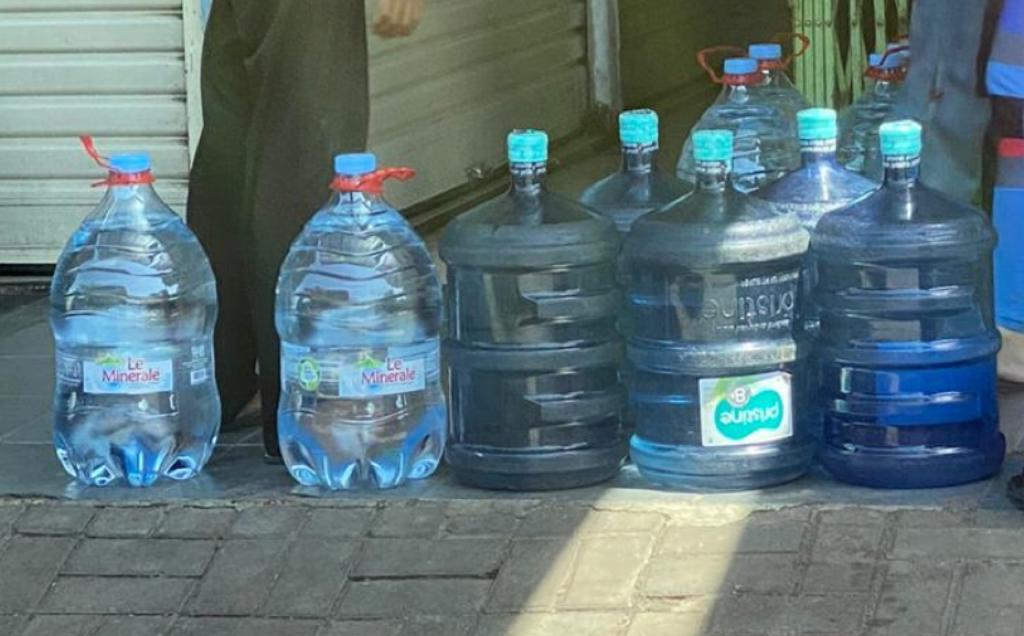


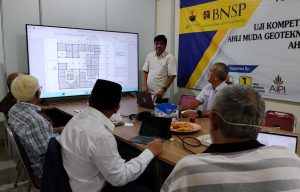






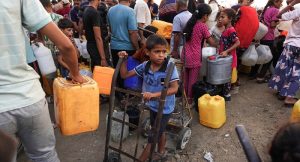
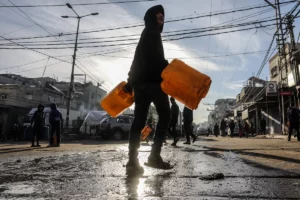
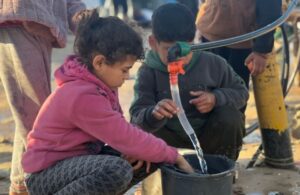
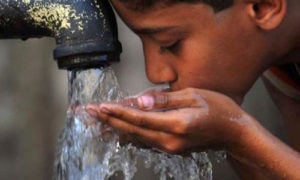














 Mina Indonesia
Mina Indonesia Mina Arabic
Mina Arabic